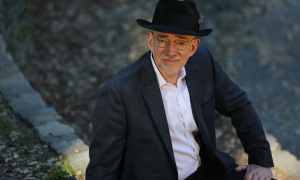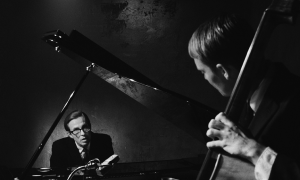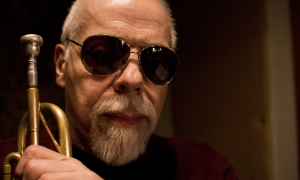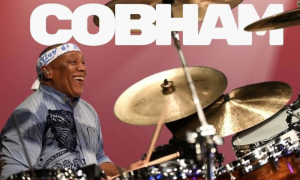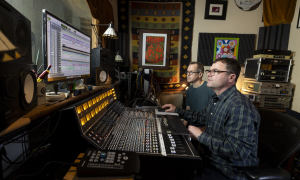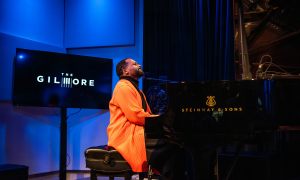Bill Barber, a musician who helped refashion the jazz tuba from its predictable oompah passages to suit the complex melodies and rhythms of Miles Davis and other postwar jazz modernists, died of congestive heart failure June 18 at his home in Bronxville, N.Y. He was 87.
A fixture of many early jazz bands, the tuba was largely reduced to a jazz relic by the early 1930s as sound technology improved. The upright bass took the place of the booming brass instrument.
Yet a core of post-World War II arrangers, notably Gil Evans, admired the tuba's tone color possibilities. They advocated its use in small jazz groups more as a melodic instrument than for any rhythmic pace-keeping.
The New Grove Dictionary of Jazz credited Barber, who took a central role in Evans' experiments in sound with trumpeter Davis, as probably the first tuba player “to take solos in a modern jazz style and to participate in intricate ensemble passages."
Harvey Phillips, an emeritus music professor at Indiana University and a leading tuba player since the 1950s, wrote this year in the journal of the International Tuba Euphonium Assn. that Barber “is a legend to me and many others for ... pioneering the interpretive styles and phrasing of the tuba in modern American jazz and for helping define the variety of roles the tuba can play in other music disciplines."
John William Barber was born May 21, 1920, in Hornell, N.Y. His music career began when his grade-school band needed a tuba player. After attending the prestigious Interlochen music camp in Michigan, he entered New York's Juilliard School but left in 1942 with a dozen musician friends to join the Army during World War II, playing in the band of Gen. George Patton's 7th Army in Europe.
Continue...
A fixture of many early jazz bands, the tuba was largely reduced to a jazz relic by the early 1930s as sound technology improved. The upright bass took the place of the booming brass instrument.
Yet a core of post-World War II arrangers, notably Gil Evans, admired the tuba's tone color possibilities. They advocated its use in small jazz groups more as a melodic instrument than for any rhythmic pace-keeping.
The New Grove Dictionary of Jazz credited Barber, who took a central role in Evans' experiments in sound with trumpeter Davis, as probably the first tuba player “to take solos in a modern jazz style and to participate in intricate ensemble passages."
Harvey Phillips, an emeritus music professor at Indiana University and a leading tuba player since the 1950s, wrote this year in the journal of the International Tuba Euphonium Assn. that Barber “is a legend to me and many others for ... pioneering the interpretive styles and phrasing of the tuba in modern American jazz and for helping define the variety of roles the tuba can play in other music disciplines."
John William Barber was born May 21, 1920, in Hornell, N.Y. His music career began when his grade-school band needed a tuba player. After attending the prestigious Interlochen music camp in Michigan, he entered New York's Juilliard School but left in 1942 with a dozen musician friends to join the Army during World War II, playing in the band of Gen. George Patton's 7th Army in Europe.
Continue...
For more information contact All About Jazz.






